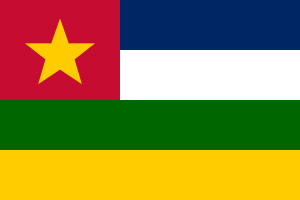Language/Pulaar/Grammar/Gender
Hi Pulaar learners! 😊
In this lesson, we will learn about gender in Pulaar. Gender is an important aspect of Pulaar grammar, as it affects the way we use pronouns and adjectives. We will discuss the gender system in Pulaar, and provide examples to help you understand how to use gender in sentences. We will also provide cultural information related to gender in Pulaar-speaking communities.
After mastering this lesson, these related pages might interest you: Pronouns & How to Use Be.
What is Gender in Pulaar?[edit | edit source]
In Pulaar, as in many other languages, nouns are classified as either masculine or feminine. These genders are not based on the physical sex of the nouns, but rather on their inherent qualities, such as form, meaning or conventional association. For example, the noun for "book" (ɗemmba) is masculine, and the noun for "water" (jolof) is feminine.
The gender of a noun is important because it affects the way in which adjectives and pronouns agree with the noun. In Pulaar, adjectives and pronouns also have masculine and feminine forms. This means that if the noun is masculine, then the adjective or pronoun must use the masculine form, and if the noun is feminine, then the adjective or pronoun must use the feminine form.
Let's look at some examples:
| Pulaar | Pronunciation | English |
|---|---|---|
| ɗemmba | /ɗemmba/ | book (masculine) |
| ɗemmbi | /ɗembí/ | book (feminine) |
| mo/ña | /mó/ñá/ | he/she (masculine/feminine) |
| gaa/lee | /gáa/lee/ | his/her (masculine/feminine possessive pronoun) |
In the table above, we see that the noun for "book" has both a masculine and feminine form, and that the pronouns and possessive pronouns have different forms depending on the gender of the noun they are modifying.
Gender and Culture[edit | edit source]
Gender is an important aspect of Pulaar culture. In Pulaar-speaking communities, gender roles are often highly differentiated. Men and women have different responsibilities and expectations, and this is often reflected in the language. For example, certain adjectives may be more commonly associated with one gender or the other, and the use of certain pronouns may be considered more appropriate in certain contexts.
It is also worth noting that gender is not always binary in Pulaar. There are some nouns that do not belong exclusively to either the masculine or feminine gender. These nouns are referred to as "common gender" nouns, and they can take either masculine or feminine agreement depending on the context.
Let's practice using gender with a short dialogue:
- Person 1: Njaay me njabu ɗemmba maa. (/ɲaay mè ñàbu ɗemm-bà màa/) (I found your book.)
- Person 2: Aña, maɓɓe maa aablanaa jiɗɗo. (/áñá/ , /màɓɓè màa àa-blànàa/ /jiɗɗò/) (Yes, my sister borrowed it.)
In this dialogue, we see how gender affects the choice of pronouns and possessive pronouns. Person 2 uses the feminine form of the possessive pronoun ("my sister borrowed it") because the noun for "sister" (aablanaa) is feminine.
Exercises[edit | edit source]
To practice using gender in Pulaar, try the following exercises:
1. Look around your home and identify five objects. Write down the gender of each noun and create a simple sentence using the correct gender agreement for adjectives and pronouns.
2. Think about the gender roles in your own culture. How are these reflected in the language you speak?
3. Practice your Pulaar skills by asking questions about gender on Polyglot Club and finding native speakers and asking them any questions.
If you want to improve your Pulaar Grammar, you can also use the Polyglot Club website. Find native speakers and ask them any questions!
Sources[edit | edit source]
➡ If you have any questions, please ask them in the comments section below.
➡ Feel free to edit this wiki page if you think it can be improved. 😎

